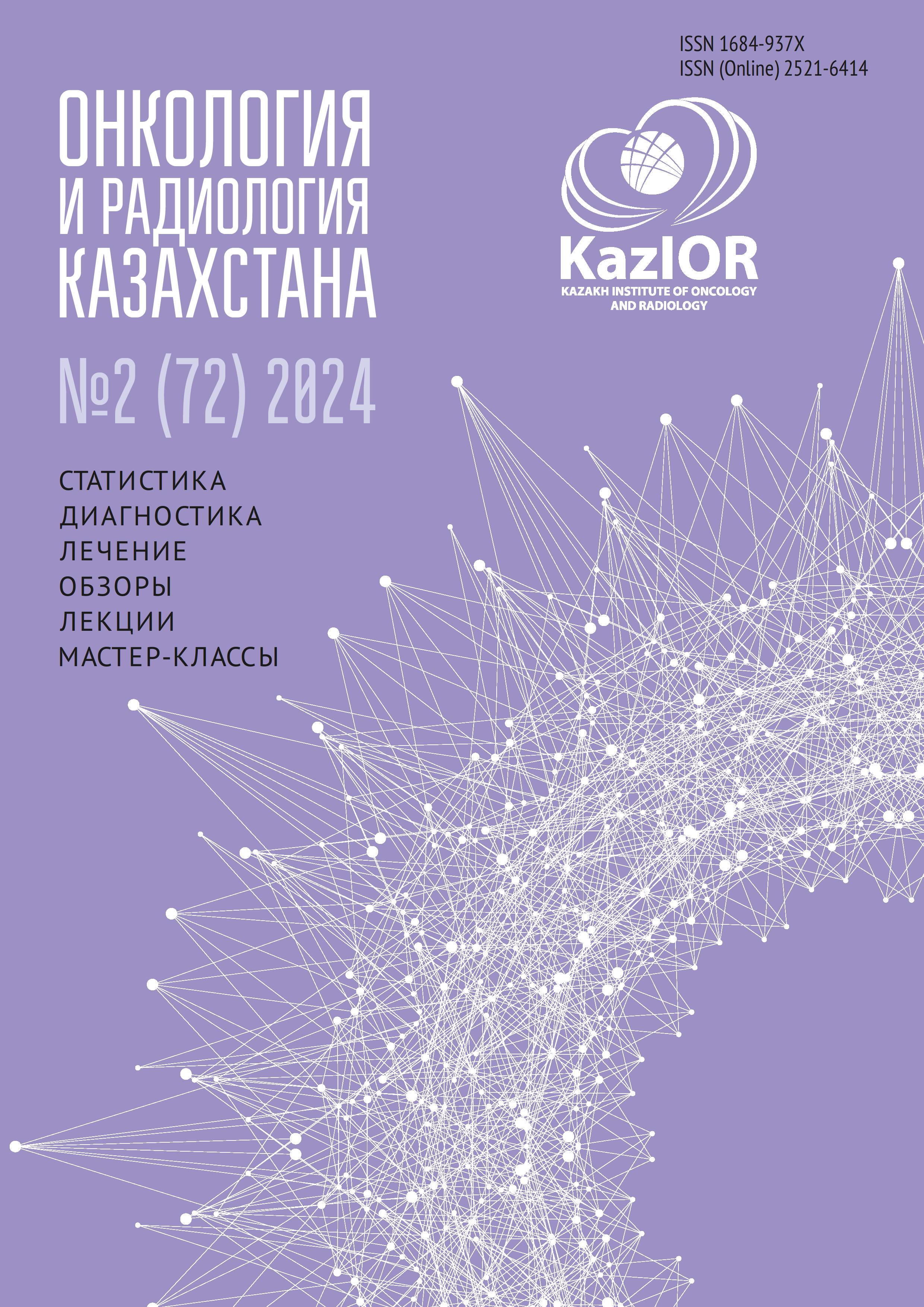Current drug therapy options for disseminated HER2-positive breast cancer at the Kazakh Scientific Research Institute of Oncology and Radiology: A clinical case
DOI:
https://doi.org/10.52532/2521-6414-2024-2-72-45-50Keywords:
ADC, RECIST 1.1., HER2 (3+) expressionAbstract
Relevance: Distant outcomes of treatment for Her2neu-positive metastatic breast cancer are improving due to access to innovative drug therapies.
The study aimed to demonstrate the initial experience of treating a patient with progressive disseminated hormone receptor-positive breast cancer expressing HER2 (3+) and nearly exhausted options for anti-tumor drug therapy using trastuzumab deruxtecan.
Methods: The paper describes a clinical case of a female patient born in 1977 who was diagnosed with Stage IV breast cancer (T1N1M1), invasive ductal carcinoma, and treated at the Kazakh Institute of Oncology and Radiology (Almaty, Kazakhstan). Immunohistochemical luminal subtype “B” with Her2neu (3+) expression. Metastatic involvement of skeletal bones with pain syndrome, lungs, liver, axillary, parasternal, and para-mediastinal lymph nodes. Since June 2023, monoclonal antibody conjugate trastuzumab deruxtecan therapy was initiated. The efficacy of fifth-line therapy was assessed using RECIST 1.1 before and during treatment. According to RECIST 1.1., target lesions included a conglomerate of hyperplastic axillary lymph nodes on the right, measuring 1.6 cm, parasternal lymph node 1.6 cm, a lesion in the parenchyma of the lower lobe of the left lung 1.3 cm, lesions (n=2) in the parenchyma of segment 2 of the left liver lobe 1.8 cm and 3.6 cm. Non-target lesion: hyperplastic para-mediastinal lymph nodes SLD 9.9 cm.
Results: Pain syndrome was completely relieved after treatment. According to RECIST 1.1. in April 2024, after 11 courses of therapy, target lesions showed size reduction: conglomerate of hyperplastic axillary lymph nodes on the right decreased to 1.0 cm, lesion in the parenchyma of the lower lobe of the left lung increased to 2.7 cm, parasternal lymph node was not visualized, lesions (n=2) in the parenchyma of segment 2 of the left liver lobe measured 1.6 cm and 2.7 cm. Non-target lesion: hyperplastic para-mediastinal lymph nodes were not visualized.
Conclusion: According to the clinical study data (DESTINY-Breast02), applying antibody-drug conjugate (ADC) demonstrates better objective response and progression-free survival time in patients previously treated with trastuzumab and taxanes.

